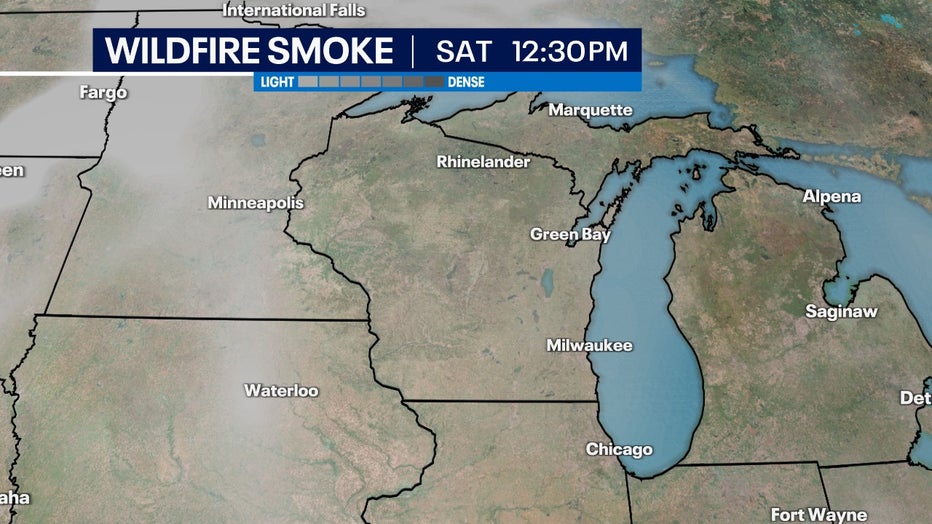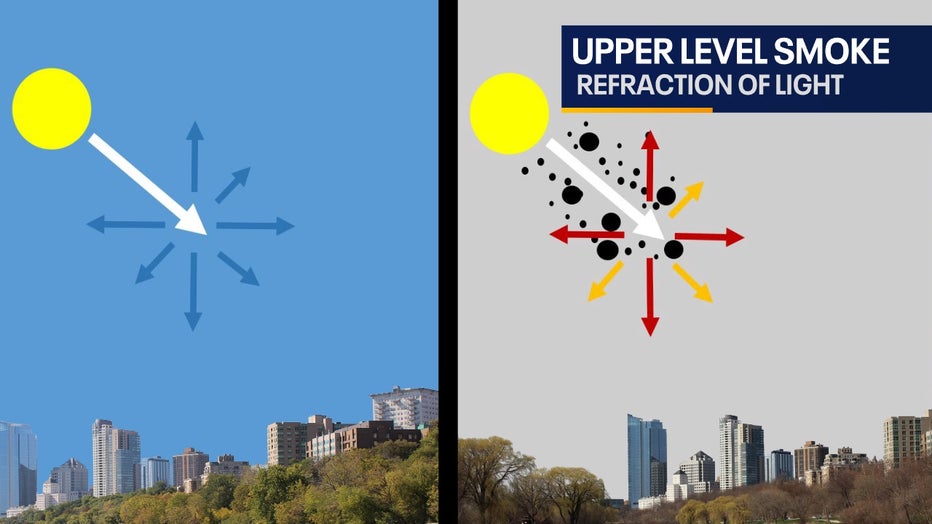Canada wildfire smoke: Wisconsin air quality improves heading into weekend

Air Quality Alert until midnight Thursday, June 15.
MILWAUKEE - Wisconsin is once again coated in wildfire smoke thanks to Canadian wildfires, and hazy skies with unhealthy air quality is the byproduct.
Southeast Wisconsin is under an air quality alert until midnight Thursday, June 15 as fine particulates at unhealthy levels to sensitive groups persist.
This particulate matter is measured in micrometers – or at a size smaller than the width of human hair. The typical wildfire particulate size ranges from 2.5-10 micrometers, and the elevated presence of this is what has led to the air quality alert.
SIGN UP TODAY: Get daily headlines, breaking news emails from FOX6 News
The good news is, by Saturday, we should have pretty drastic improvements in the haze caused by the smoke. Much of the Great Lakes will clear up with some plumes still sitting over Minnesota. These fires will continue to burn, and we will likely be flirting with air quality concerns off and on to the end of June.

By June 17, wildfire smoke density in the atmosphere declines
What causes hazy skies and brilliant sunsets is how light passes through the atmosphere. On a clear day, our nitrogen-rich atmosphere refracts blue light and gives us a blue sky. But with upper-level smoke, those tiny particles refract the longer wavelength colors such as reds and oranges. The more of the atmosphere it has to pass through, like during sunset, the more visible those colors become.

Small particulates in the upper atmosphere such as smoke refract light giving the sun an orange/red hue opposed to our typical blue sky
What to do
The Wisconsin Department of Natural Resources recommends residents reduce their time outdoors when air quality alerts resulting from Canadian wildfire smoke are in effect. The DNR said people with heart or lung disease, older adults and children should consider making outdoor activities shorter and less intense and reduce heavy exertion.
- Stay indoors
- Close doors and windows
- Avoid activities that increase indoor pollution (vacuuming, frying food, burning candles or using gas-powered appliances)
- Install a high-efficiency air filter
- Use an N95 mask if outdoors for long periods

